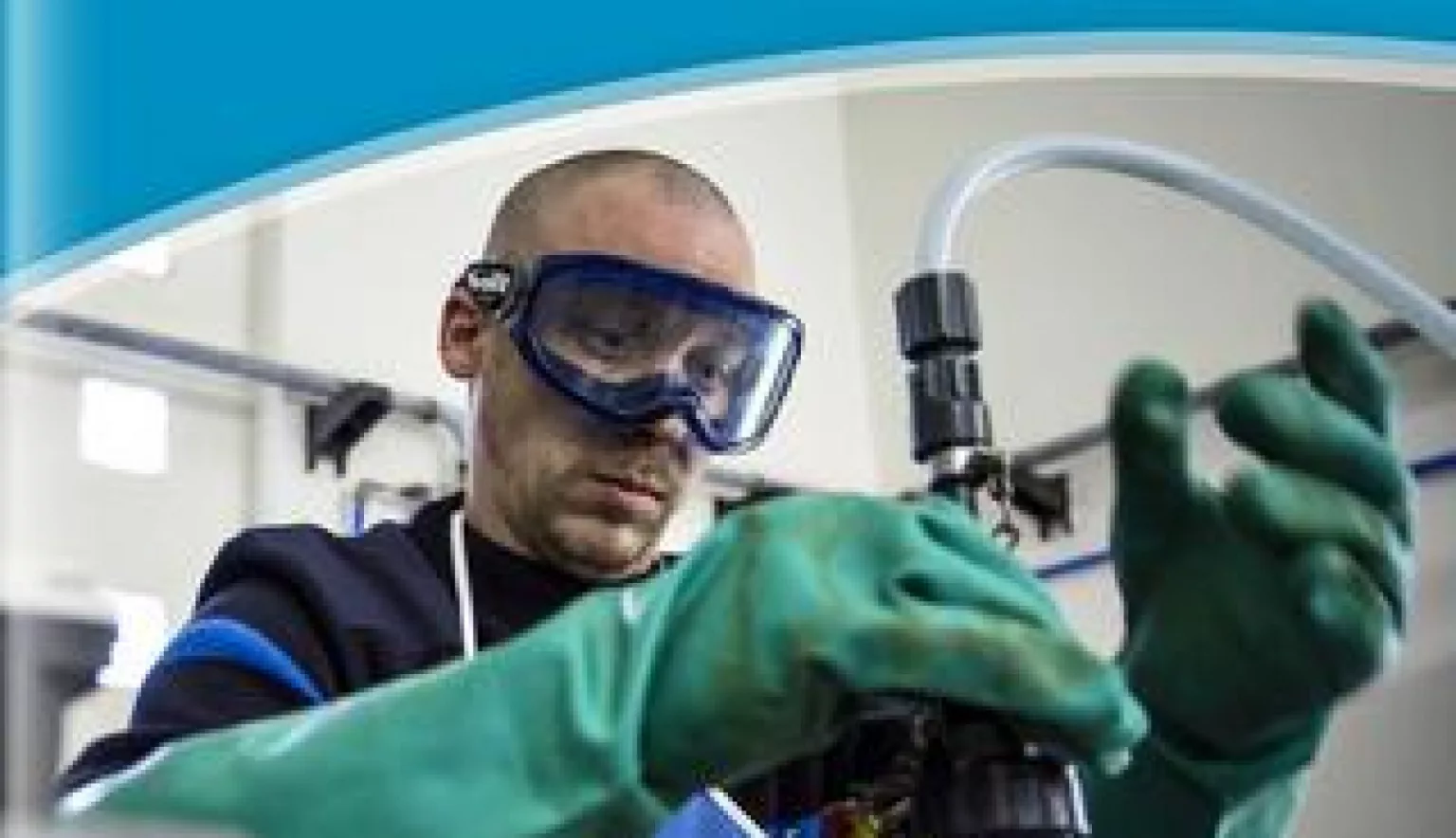Societe Wallone des Eaux is ironing out the details in operational performance, ensuring its customers receive the best possible service through creating strategies for excellence.
INTERNATIONAL COOPERATION
Located in the southern region of Belgium, Societe Wallone des Eaux (SWDE) has a rich history in the area that has led it to become a recognised industry leader, with a reputation for excellence.
The Company serves a large territory and has been doing so since it was formed as a National Company in the 80s, when it was known as the Belgium Water National Company. Shortly after SWDE was in need of rejuvenation, and this gave life to its new name and new outlook on conducting business in the region.
SWDE was formed under strict regulations that would ensure it best served the people of the region, and due to this its present day state sees the Company supply one million drinking water connections through to approximately 2.3 million people.
“It is important to note that we are working solely within the drinking water sector,” explains Eric Smit, Board Member of the Executive Committee. “Everything related to the sanitation of water and wastewater is something that we do not involve ourselves in, although it is important to what we do and the way we are able to run our day-to-day operations.”
STRATEGIC PLANNING
In its present day state the Company employs around 1,340 people, with a strategic plan in place to downsize its work force to 1,200 people by 2022. This will represent an effort of around 20 percent of the global FTE over a 10-year period of time.
“We put a strategic plan in place five years ago, with two very specific targets in mind,” continues Smit. “Initially the two targets seemed to be in contradiction of each other, however, they have come together over the years as part of the bigger picture for our Company.
“The first objective was about investing heavily in both people and facilities, with the average age of our pipe-network currently at around 56 years old. We saw the need to invest in the renewal of our facilities and production/distribution networks.”
The Company has set fixed targets of approximately 100 million per year for its investment pipeline and facilities allowing it to carry out the required work to a high standard.
Smit adds: “Our second objective for the strategy involves finding ways to keep our water bills at a sustainably affordable price for our customers, which has always been our aim. We have set our target on achieving an average of 0.5 percent of a household budget to be spent on drinking water.”
This aim is a part of the management agreement that links the Company to the Walloon Region in which it operates, with the main obligations based on keeping annual expenses at a reasonable level.
Smit states: “In summary, our operational strategy for the future of the Company is based on two conditions; keeping the cost of water at a reasonable level, while also guaranteeing a significant level of investment and renewal of our networks within the region. That will be achieved through a substantial driving down of our overall running costs by around 15 percent over a 10-year period of time.”
In the past SWDE has achieved success with thanks to the close monitoring of its operational strategies. For example, leading up to 2016 the Company worked on the simplification of its management structure through the reorganisation of its production and distribution activities and making room for lean management.
“This allowed the management team and key players in the field to work closely together using our new management model,” Smit describes. “We were able to redefine the operational processes, which gave us more flexibility in other areas of the business to reconsider how we were organising our activities.”
When the Company decided to approach the subject of its strategic plan for 2022, opinions were very positive about the targets being set thanks to past experiences in this area.
Smit continues: “Our aims are always reasonable but ambitious and what better proof of our success than winning a prize for the Organisation Publique de l’Année (Public Organisation of the Year) in 2016.”
KEY PHILOSOPHIES
In order to meet with the aforementioned strategic plan, SWDE created seven core priority projects to aid it during this time.
The first of these projects involved the lean reorganisation of both its activities and management team, becoming one of the key philosophies of the Company and a great contributor to its recent success in the industry. This required a large-scale cultural change within SWDE, which so far has been incredibly successful due to the efforts of each member of staff involved.
“Linking in nicely with our lean management restructuring process, we have also worked on becoming more agile in terms of our HR management,” explains Smit. “We have come from a dominantly top-down culture of management, which we have had to change quite dramatically.”
Moving on from the management structure within the Company, it has also placed a focus on technical projects and securing water supply for the territory in terms of both quantity and quality.
Smit states: “We had to question how we would be able to reinforce water supply across the territory, while also safeguarding the supplies for both the customer and industry.
“We have also had to look into getting more efficiency in other areas of our business; including our telemetry and telemanagement information systems. As in all industries, this is becoming increasingly important to both the safety and efficiency of our business, which has also aided us in our fifth philosophy to improve our network performance in terms of monitoring losses.”
The sixth philosophy in the SWDE’s strategic plan involves the improvement of knowledge in asset management, which is incredibly important to its investment prospects.
Smit adds: “We realised that if you spend money in the wrong place at the wrong time, it will be to no avail and therefore asset management is a key issue for us to prioritise our investments renewals.”
Lastly the importance of interactivity with the customer and providing a more customer-centric service has been brought to the fore, starting with a push for a reshape of its website.
“We have realised that it is easier for our customers to get in touch with us on a website, and recent interactivity studies have found that more than a third of our customers have created an account and are connected to us via either the website or social media channels,” explains Smit. “This is having a direct impact on our outgoings, with thanks to the reduction of calls and costs relating to mailing and paperwork.”
INDIVIDUAL COMMITMENTS
In its recent history SWDE’s operation management was divided between its various independent branches, which was done to align with the direct legacy of the Company’s former regional offices. From that point onwards it was able to move from a regionally-based structure to an organisation built upon the varying skills and occupations such as distribution, sales and production.
“As the years have passed our operational strategy has become increasingly transversal,” continues Smit. “With thanks to our new organisational framework, our facilities located across Wallonia all share unified aims, employ the same resources and applying the same working methods.”
All of the developments made by the Company in recent years have been carried out in a relatively calm social climate, enabling SWDE to successfully carry out projects to a set time scale.
“We are proud of the developments we are seeing at present, making positive changes and delivering on our planned results such as reducing the water losses previously seen on the networks,” concludes Smit. “This confidence has allowed us to be more creative, innovative and subsequently more successful, taking our shared vision, individual commitment and collective discipline to the next level.”




















